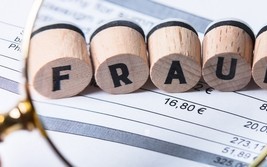


Fraudulent misrepresentation is a type of tort (civil wrong) that occurs when one party makes a false statement or conceals material facts with the intent to deceive another party, and the other party relies on that false statement or omission to their detriment.
This can occur in a variety of settings, including business transactions, employment relationships, and personal relationships.
In order to establish a claim for fraudulent misrepresentation, the claimant must prove several elements.
First, the claimant must show that the defendant made a false statement or concealed a material fact.
Second, the claimant must show that the defendant had knowledge of the falsity of the statement or omission or acted recklessly in making the statement or omission.
Third, the claimant must show that the defendant intended to induce the claimant to rely on the false statement or omission.
Fourth, the claimant must show that the claimant justifiably relied on the false statement or omission.
Fifth, the claimant must show that the claimant suffered damages as a result of the reliance.
Fraudulent misrepresentation can result in significant financial harm to the victim, as they may have relied on false information when making important decisions. For example, a person may have been induced to enter into a business transaction based on false information provided by the other party, resulting in financial losses.
In such cases, the victim may be entitled to damages to compensate them for their losses.
In addition to civil liability, fraudulent misrepresentation can also result in criminal liability in some cases. For example, if the false statement was made in connection with a securities transaction, the defendant may be subject to criminal prosecution under securities laws. The Financial Services and Markets Act 2000 provides that any person who makes a false and misleading statement in connection with securities transactions may be subject to criminal prosecution.
Furthermore, the Financial Services and Markets Act 2000 also provides for civil remedies in cases of fraudulent misrepresentation.
Overall, fraudulent misrepresentation is a serious legal issue that can have significant consequences for both the victim and the perpetrator. It is important to be truthful and honest in all dealings with others to avoid the risk of liability for fraudulent misrepresentation.
In addition to the elements required to establish a claim for fraudulent misrepresentation, there are several defences that a defendant may raise in response to such a claim.
One common defence is that the claimant did not justifiably rely on the false statement or omission. For example, if the claimant had reason to doubt the accuracy of the information provided by the defendant, they may not be able to establish justifiable reliance.
Another defence is that the defendant did not have the requisite intent to deceive the claimant. For example, if the false statement was made in good faith or based on a mistaken belief, the defendant may not be liable for fraudulent misrepresentation.
In some cases, a defendant may also argue that the claimant was contributorily negligent or assumed the risk of relying on the false statement or omission. This defence may be particularly relevant in cases where the claimant had the opportunity to investigate the accuracy of the information provided by the defendant but failed to do so.
Cases involving fraudulent misrepresentation can be complex and require careful analysis of the facts and legal issues involved. It is important for both claimants and defendants to seek the advice of experienced lawyer when dealing with such claims.
Remedies for fraudulent misrepresentation
The court can choose to rescind (set aside) the contract, restoring the victim to the position they would have been in, had they not entered into it.
The court can also award damages.
For certain aspects of such a case, a professional investigator may be required, for example, to assess the defendant’s likely ability to meet a claim for damages.
The Association of British Investigators will help you find an experienced investigator here.